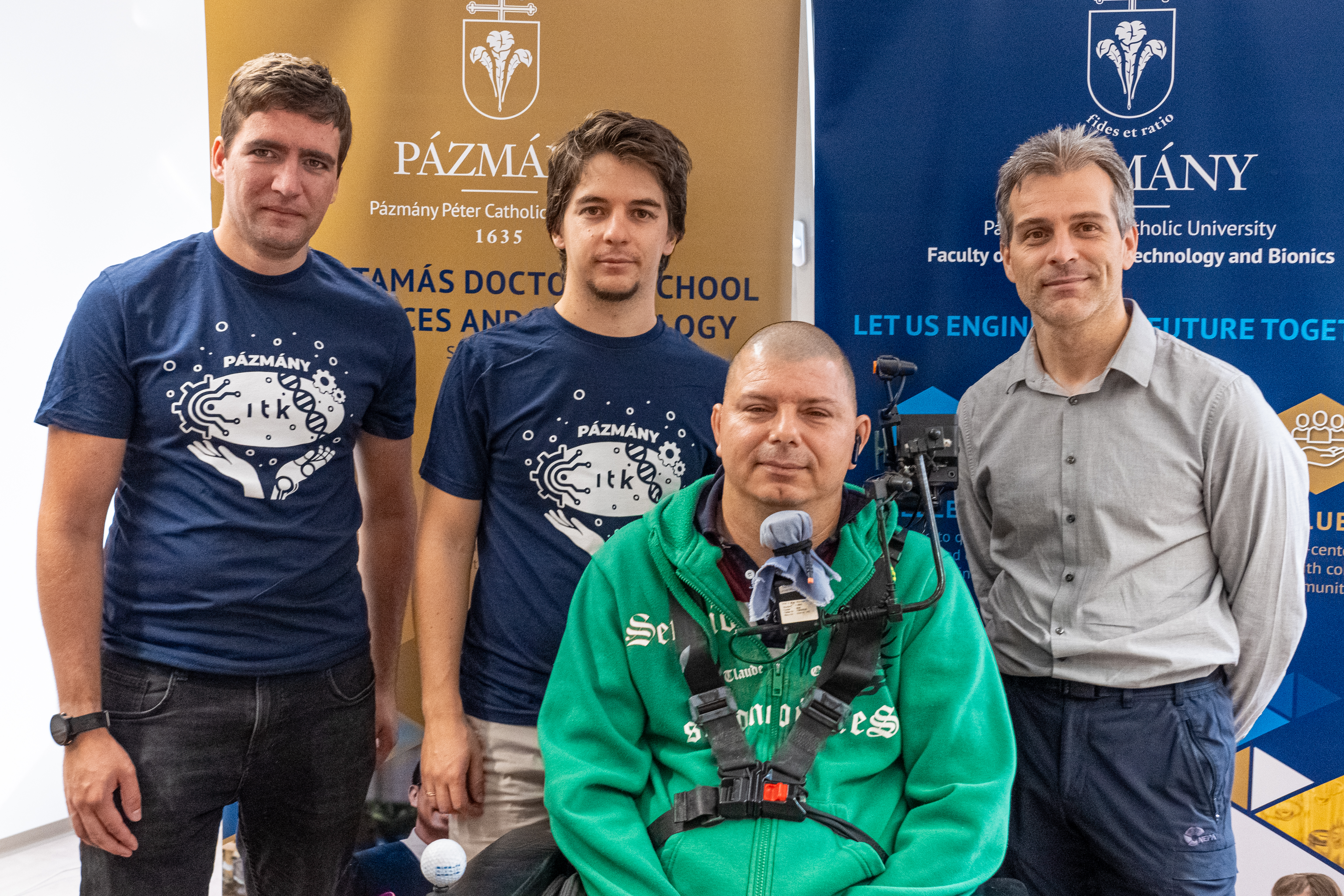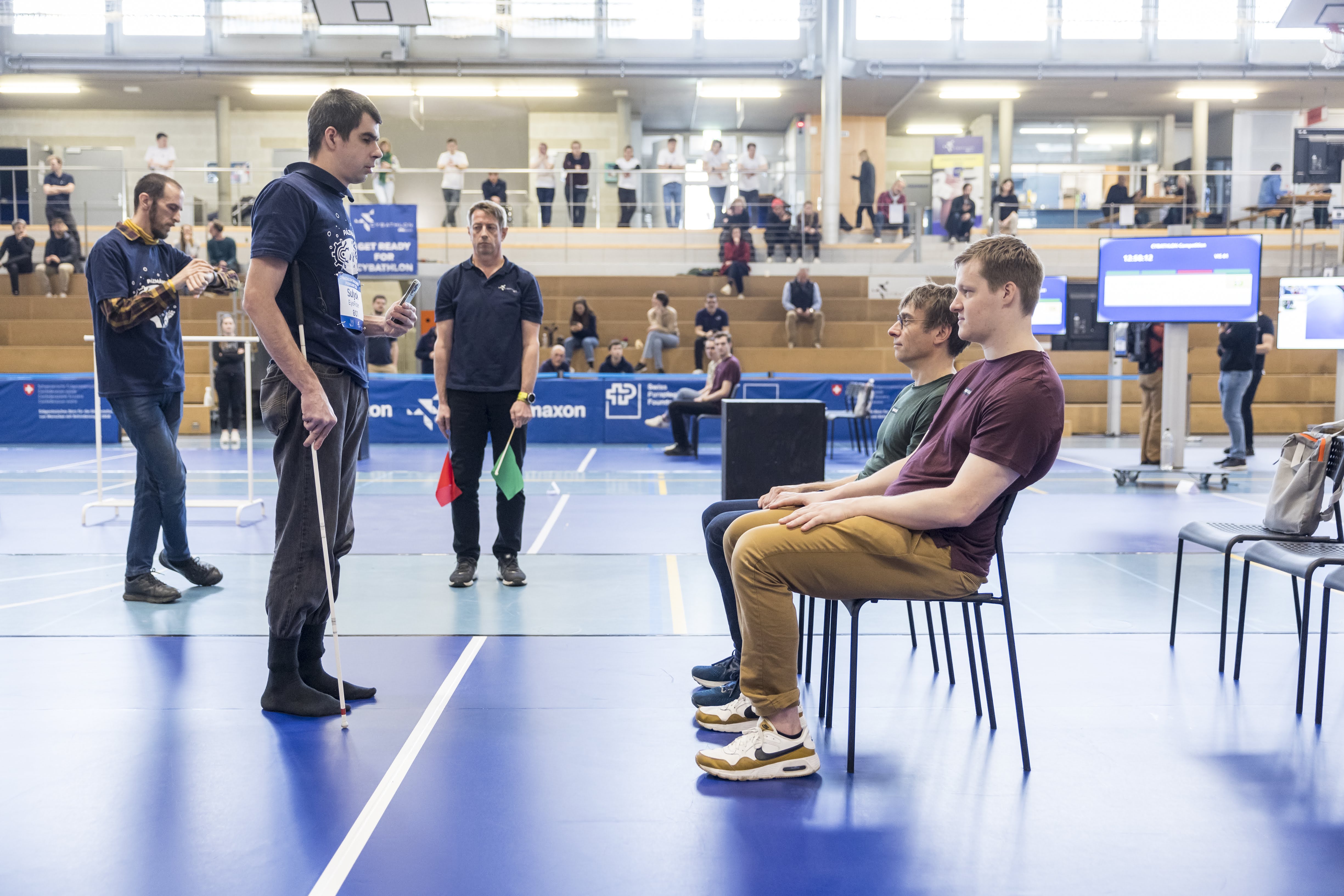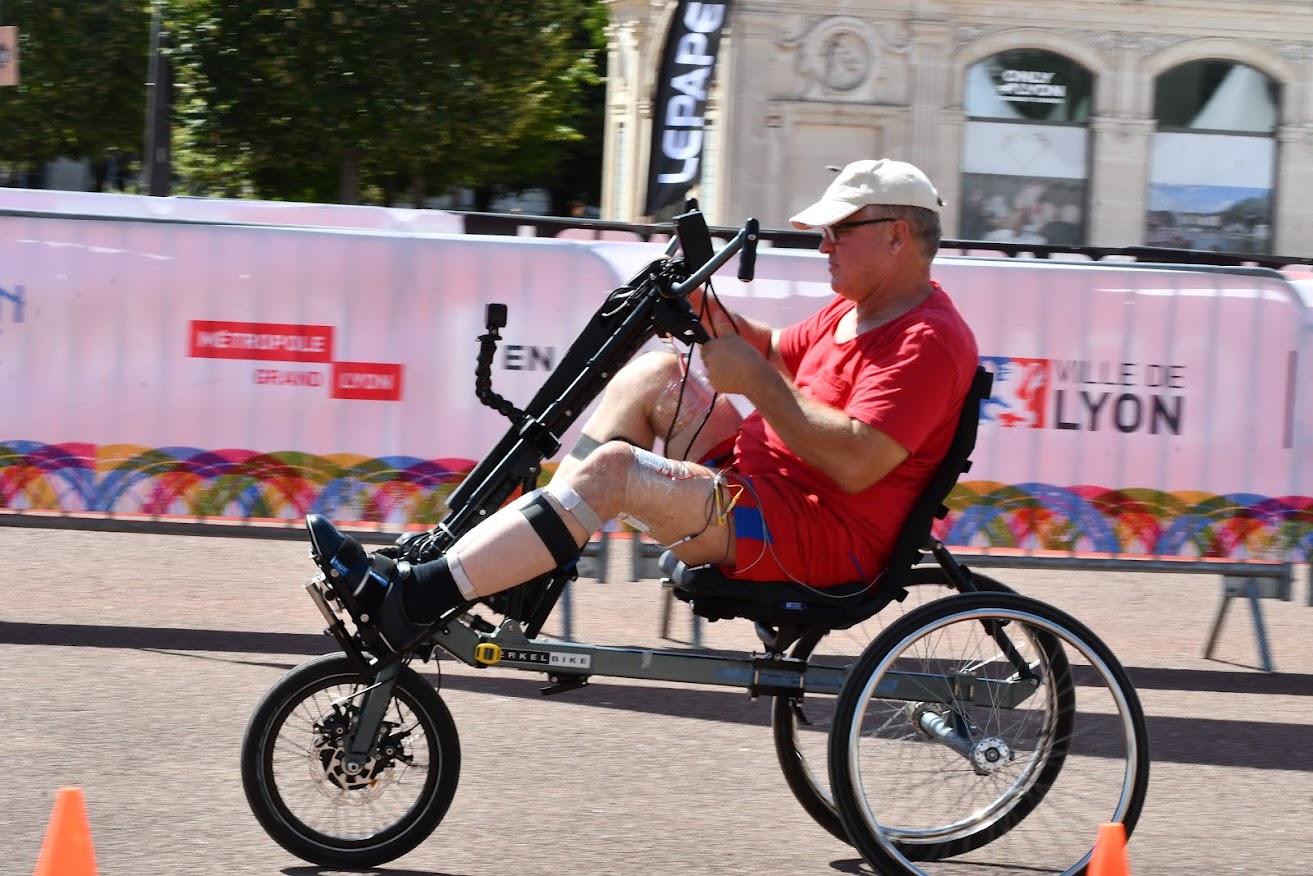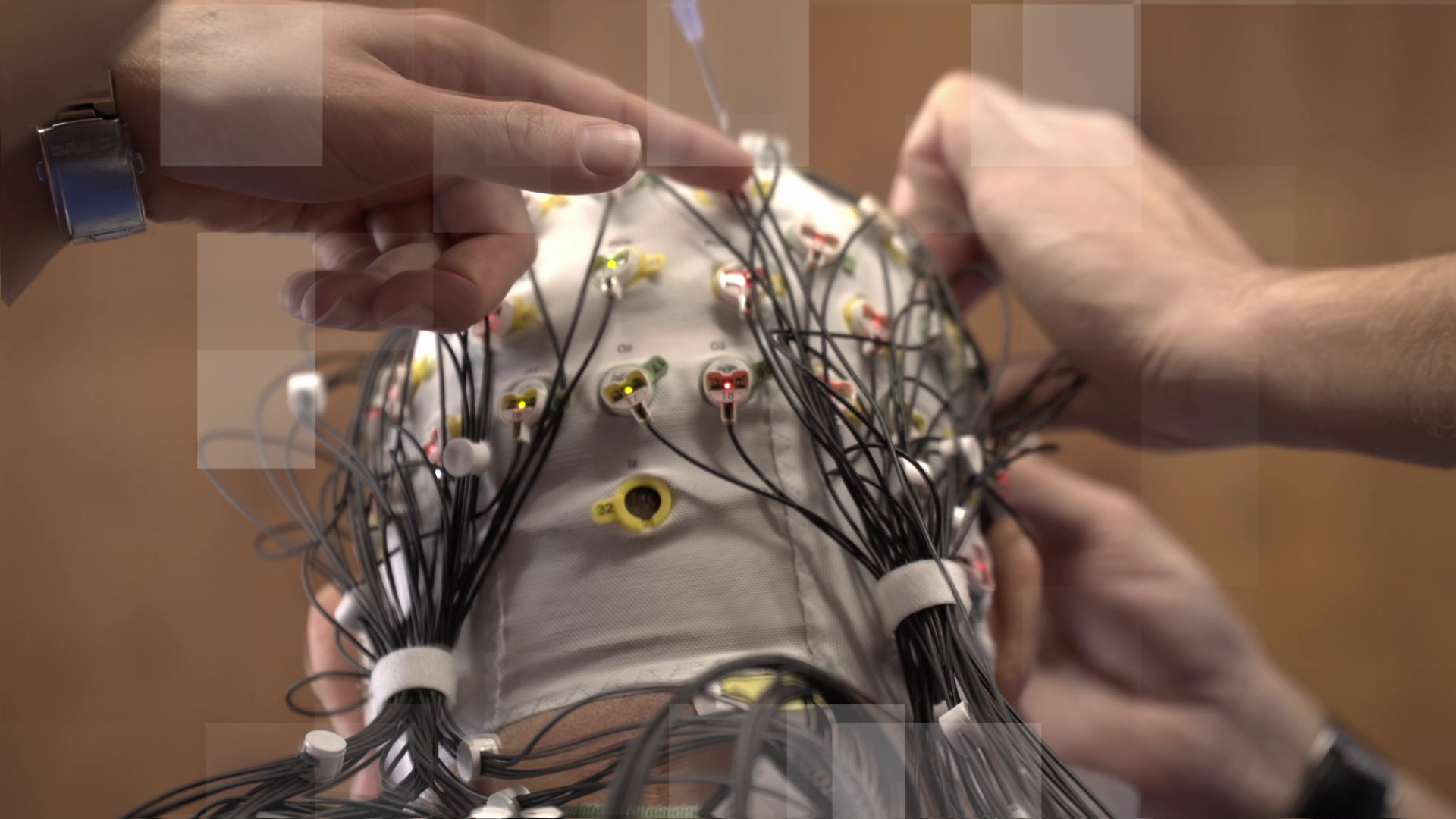About the Cybathlon competition
The Cybathlon is an international competition, often considered the "Formula 1 of rehabilitation," bringing together individuals with physical disabilities and the latest technologies to showcase the potential of innovative assistive devices. Held every four years by ETH Zurich, Cybathlon provides a platform for various assistive technologies that aim to make daily life easier for people with disabilities. Cybathlon holds a special place at Pázmány ITK. Several teams from the Faculty of Information Technology and Bionics participate in the event, combining their engineering expertise and creativity to develop technologies that enhance quality of life in alignment with competition tasks.
About this year’s competition
The Cybathlon 2024 took place from October 25 to 27 in Zurich, where teams from around the world tested their skills with advanced robotics and AI solutions in real-life scenarios, supporting the integration of these technologies to improve mobility, independence, and quality of life. This global event, held for the third time, brought together 67 teams from 27 countries across eight disciplines.
Professor Kristóf Iván, Cybathlon Coordinator at ITK, organized the preparation and participation of Pázmány ITK.
Two of our teams (FES – Functional Electrical Stimulation Bike Race - and VIS – Vision Assistance Race) travelled to Zurich, while one of our teams (BCI – Brain-Computer Interface) participated remotely from Hungary. Each team dedicated a lot of time and effort, eagerly preparing for October 25. For the participants in Zurich, it was crucial to get familiar with the venue and competing teams and to adapt their developed technology to the location in the time available. For instance, light conditions play a significant role in the proper functioning of the VIS technology, while in the FES category, device calibration and flawless mechanical operation were sources of excitement. For the BCI team participating remotely, challenges included ensuring the pilot was well-rested and focused, meeting broadcast requirements, and maintaining stable data connectivity.
Ebrainers Team (BCI Category) Report:

Led by Dr. Márton Csaba Köllőd, our Brain-Computer Interface (BCI) team is developing a revolutionary algorithm that translates brain activity - imagined commands or actions - into control signals for digital devices. This technology enables people with paralysis below the neck to control an electric wheelchair, robotic arm, or computer cursor using only their brain waves.
Our Ebrainers team plays a pioneering role in BCI research and has been proudly representing Pázmány University and Hungary at Cybathlon competitions since 2016. The team is supported by Brain Products, SZTAKI, and the HUN-REN Centre for Natural Sciences.
Team Members:
- Zoltán Csortos - Primary Pilot
- Zoltán Boda - Secondary Pilot
- Júlia Fazekas - Pilot Assistant
- András Adolf - PhD Student, Software Development, Experiment Lead
- Zoltán Gátmezei - MSc Student, Software Development
- Dr. István Ulbert, MD, DSc - Research Supervisor
- Dr. Márton Csaba Köllőd - Team Manager
Our goal was to complete two out of the ten tracks in the competition, demonstrating that the system we envisioned works in practice.
The period leading up to the competition was challenging. The primary pilot fell ill and couldn’t attend practice sessions on Wednesday or Thursday, so the secondary pilot stepped in to test the system, although control was more difficult for him. Alongside this, the team faced technical issues. Of the two computers available, one tended to freeze randomly, while the other slowed down. This added to the team’s stress, along with the pilot's illness. Thankfully, the primary pilot recovered and arrived just in time for the Saturday qualifiers. It seemed that driver updates and some adjustments to the operating system had resolved the computer issues. We placed the EEG cap, ran tests to determine the most effective classifier system, but the results became increasingly disheartening as none seemed to perform as well as two weeks prior. Finally, we chose the best of three possible classifiers, though even it worked only partially. As a result, we quickly had to change tactics just before the start, agreeing with the pilot to focus solely on wheelchair control and pass on all other tracks.
The first heat began, and our pilot completed one track. The team manager was nearly ready to call it a day when we were informed of a second heat. After a brief relaxation, we returned to the start with renewed enthusiasm. Our pilot seemed to regain his focus, quickly reached the edge of the first track, but then stalled, with minutes passing before he was able to continue. After that, however, he completed the first task, then the second, then the third.
The result speaks for itself. The system and pilot proved operational even under stress, exceeding our initial expectations. This was the fruit of five years of persistent effort. Among teams relying solely on EEG control, we would have ranked fourth. However, the impressive achievements of the American team, which used implanted electrodes, cannot be overlooked. Thus, overall, we finished in 5th place, ahead of teams from Thailand, Austria, and Germany.
Looking ahead, we are encouraged by this strong result and, after a short break, will resume our work with full force. We plan to re-evaluate the system and our experimental paradigm, which we use for data collection, and return in 2028 with a new concept.
EyeRider Team (VIS Category) Report:

Hungarian success on the international stage: Pázmány ITK’s EyeRider team won first place in the Vision Assistance (VIS) category at Cybathlon 2024!
For the first time, Cybathlon included a Vision Assistance (VIS) category. Competing alongside Pázmány’s EyeRider team in the VIS category were teams from Zurich University of Applied Sciences (ZHAW), ETH Zurich, University of Zurich, Japan’s Wakayama University, Sorbonne University in Paris, and the Entrepreneurial University of Innsbruck.
The competition involved ten tasks based on everyday activities, such as navigation, object recognition, and color identification. Unlike other teams’ complex, multi-component systems, EyeRider developed an app for an iPhone, accessible to anyone, to keep complexity low and ensure daily usability.
In the final, EyeRider’s pilot, Péter Sulyok, successfully completed seven out of the ten tasks within the available 8 minutes, securing first place ahead of the French team, which completed three tasks to take second place, and the Swiss team, which completed two tasks to finish third.
Research and development of the software were conducted at ITK’s Bionic Vision Center, involving students from the Pázmány ITK Computer Science Engineering BSc, Info-Bionics Engineering MSc, and the international Image Processing and Computer Vision MSc programs.
EyeRider’s blind pilot, Péter Sulyok, was actively involved in testing the application and designing the user interface and interactions during the preparation phase. His exceptional situational awareness and intelligence were key to their success. Project Coordinator Viktor Karacs handled communications with organizers, technical support, setting up the practice area, acquiring equipment, and preparing the pilot.
Algorithm development was led by Dr. Kristóf Karacs, head of the lab, and Dr. Anna Gelencsér-Horváth, who also coordinated the students involved in the project (Melinda Sziksz, Péter Halász, Boglárka Szabó, Bálint Lassú, Andrej Kondakov). Mobile app development and the integration and testing of functions were managed by Márton Jusztin, who incorporated the new features into the LetSee app.
Special thanks go to the Association for Info-Bionics for their support, and to Gábor Quintz, who laid the foundations for the app, as well as the ELTE IK Department of Artificial Intelligence’s NIPG research group for their professional collaboration, which greatly supported the work.
The functions developed for Cybathlon tasks will likely be integrated into the LetSee app in the future, ensuring practical usability in everyday scenarios.
HunFess Team (FES Category) Report:

Led by Prof. József Laczkó, the HunFess team is developing innovative Functional Electrical Stimulation (FES) protocols to help paraplegics cycle.
The team’s pilot, Csaba Szamosi, played a key role in optimizing the FES protocols needed for cycling. The team uses a Berkelbike Pro, a tricycle equipped with a six-channel electrical stimulator for FES-controlled cycling with the legs.
In collaboration with the Wigner Research Centre, the University of Pécs, and the National Institute of Medical Rehabilitation, HunFess combines technical, scientific, and medical knowledge to advance FES-based rehabilitation for individuals with spinal cord injuries.



